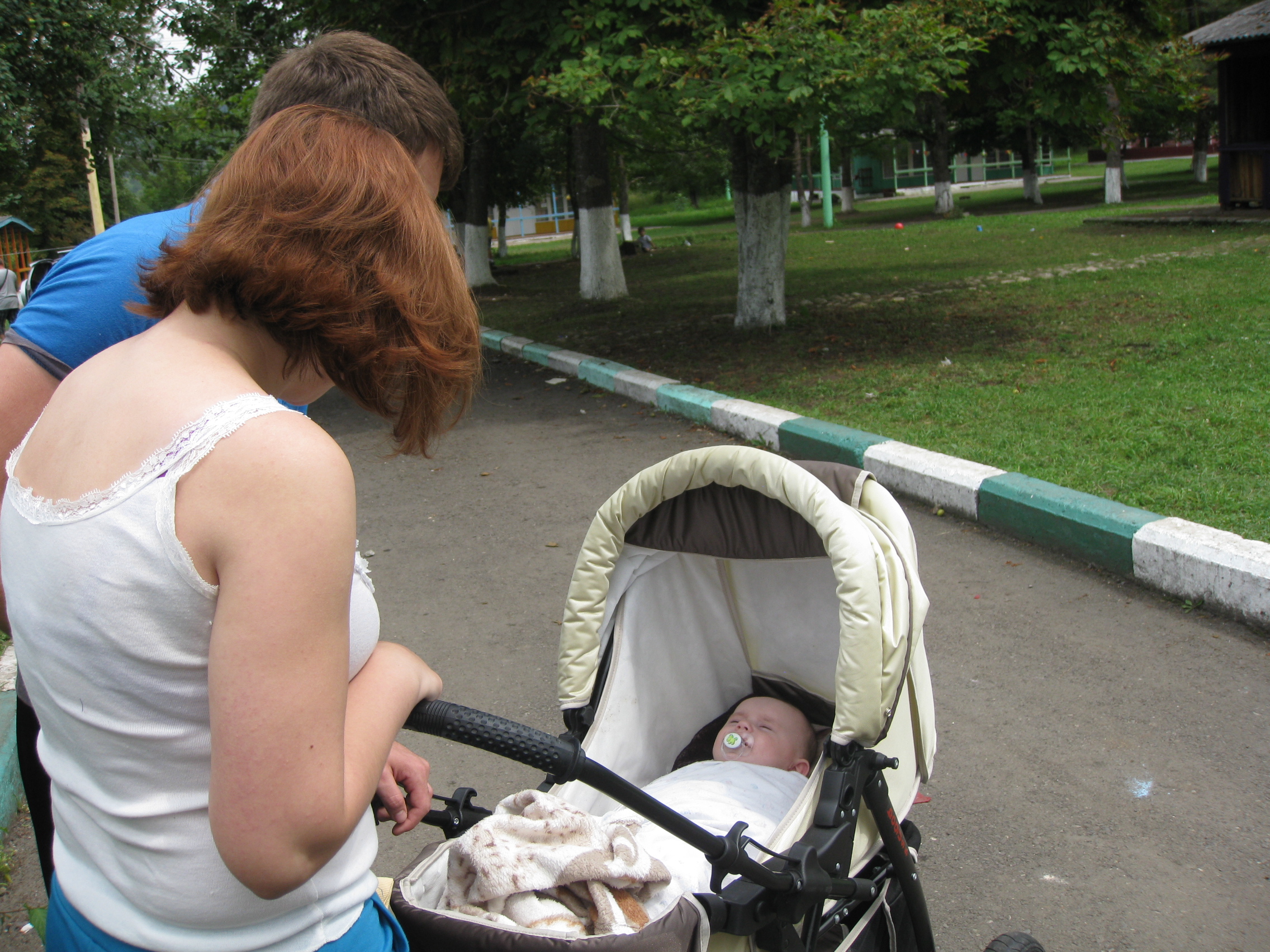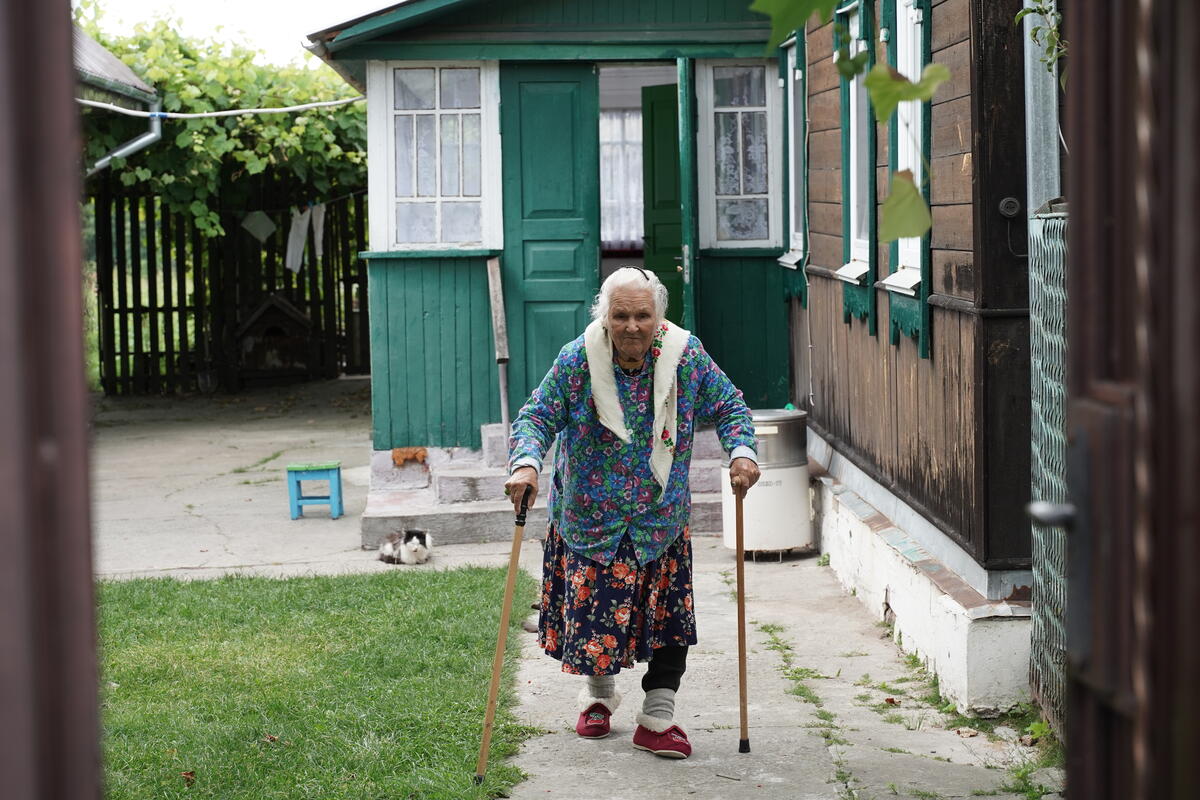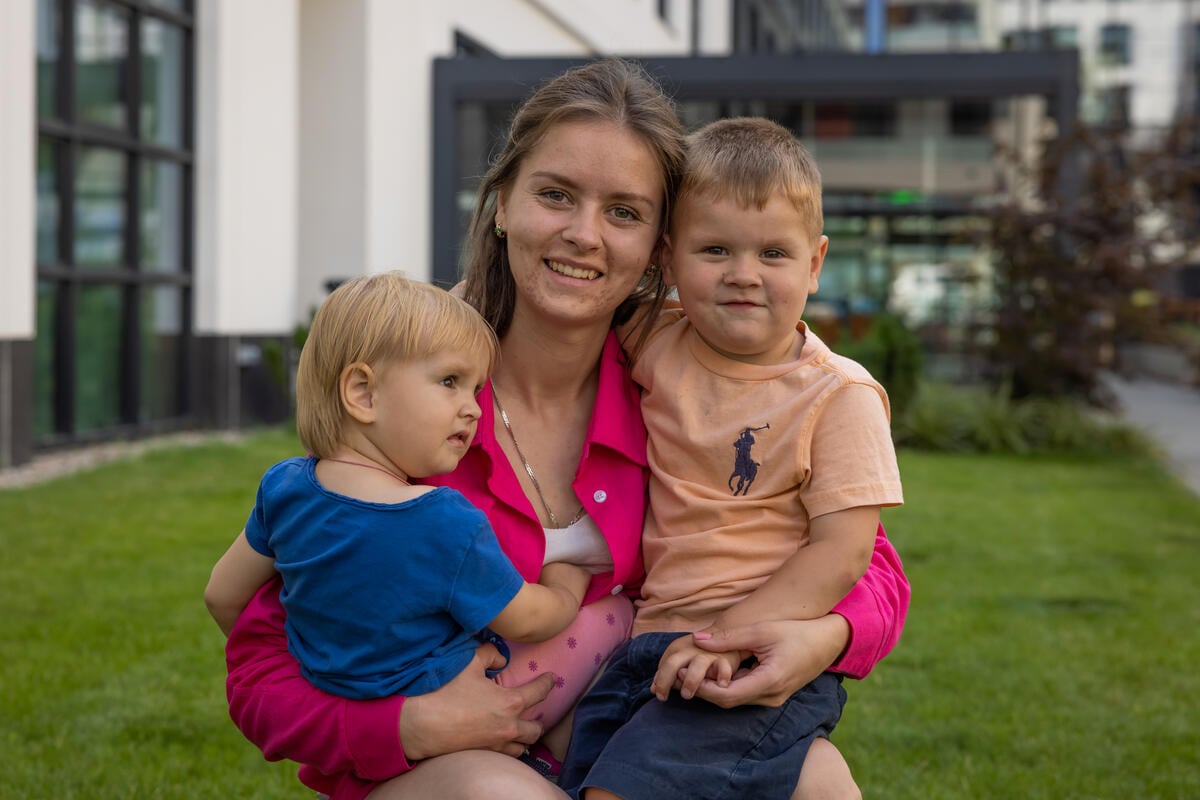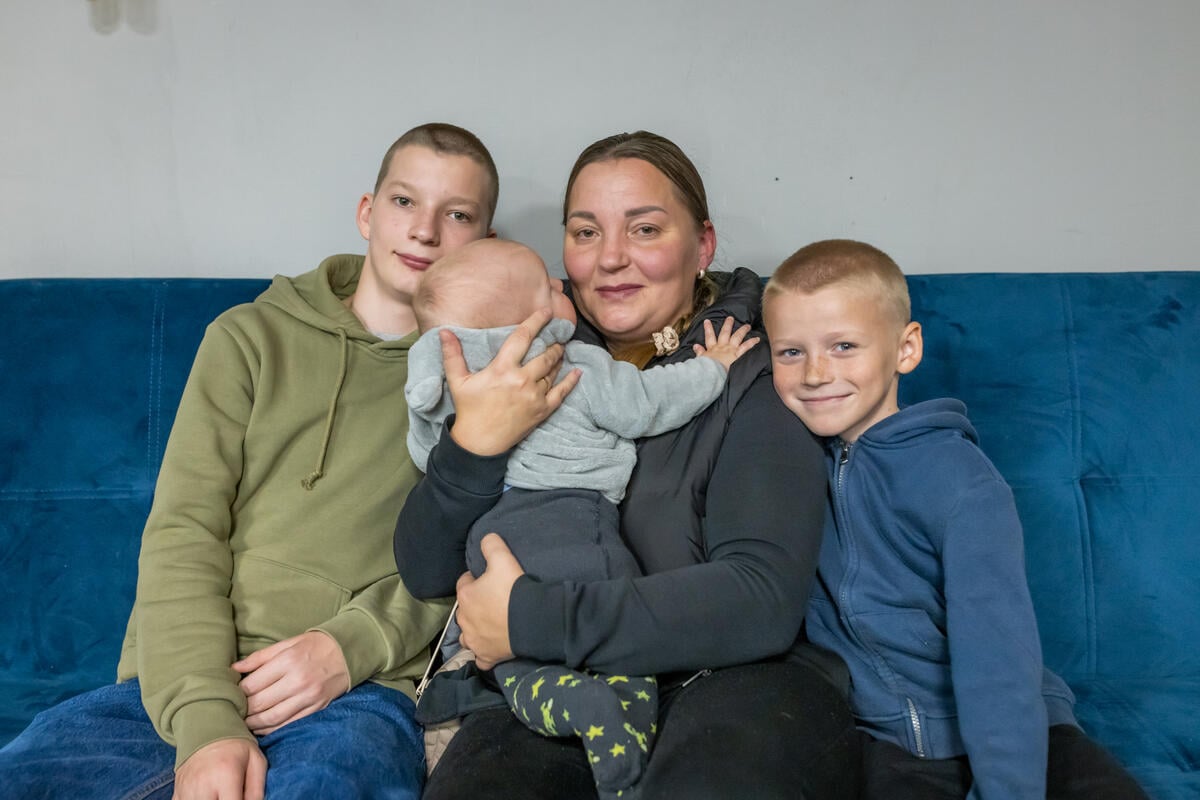Ukrainians in Russia worry about their future
Ukrainians in Russia worry about their future

VLADIKAVKAZ, Russian Federation, August 11 (UNHCR) - Sergey* has made up his mind: he wants to move with his wife and baby son to a new job and life in Siberia rather than return to their home in eastern Ukraine when the conflict ends.
"I am a miner and I already have a job offer in [the Siberian city of] Irkutsk," he tells UNHCR at a summer camp for youth near Vladikavkaz in the Russian Federation's North Ossetia republic, where about 100 refugees from Ukraine are staying. They are among some 800 Ukrainians who have sought shelter in North Ossetia as they wait to see what happens across the border.
Sergey is trying to figure out how to pay for the long trip to his future workplace. But as he and his wife Larissa* make their plans, many other refugees in the camp are not sure what to do.
They left relatives, property and belongings in eastern Ukraine, but they are afraid to go back to a deeply divided country. "Much of the infrastructure is demolished and people hate each other. Life will never be the same," one old man notes.
The trauma of forced displacement is fresh in the mind and many people are just glad to be safe. "We ran for our lives and did not think about the future," says an elderly widow, Maria,* who arrived with her daughter and grandchild. "We had no time to prepare for flight."
She, like others, worries about her home and belongings. Maria knows that if she wants to sell her house, she must go back for a few days at least. Others want to retrieve personal documents, including professional diplomas or school reports, but they need to do so soon. Once they obtain temporary or permanent asylum in Russia, they will not be able to travel to Ukraine without forfeiting that status. Others worry about their future access to education and pension rights acquired in Ukraine.
Officials of the local branch of Russia's Federal Migration Service (FMS) do their best to advise people on different options: Temporary asylum or permanent refugee status, work licences, various types of residence permits, access to citizenship and resettlement programmes.
According to Russian figures, more than 700,000 people have crossed the border with Ukraine this year, including some 180,000 who have approached the FMS to seek refugee status, temporary asylum, citizenship, temporary residence, residence permits or resettlement.
Russia's Federal Assembly (parliament) recently adopted new legislation to help speed up the processing of applications for temporary asylum from three months to three days and has introduced other measures to hasten things.
Meanwhile, EMERCOM, the Russian agency charged with responding to humanitarian emergencies, has begun clearing border areas by transferring 24,000 refugees to locations further inland. Local authorities have been putting many of the arrivals, like Sergey and Larissa, in summer camps, but are now preparing to house them in schools and universities when the weather starts getting colder from September.
Of the 800 Ukrainians in North Ossetia, some were transported by EMERCOM to shelters, while others are staying with relatives and friends in the region. The North Ossetian population has more experience with refugees than any other Russian region. Located in the conflict-prone Caucasus, they have hosted people fleeing inter-ethnic conflicts in Chechnya, Ingushetia and Georgia in the past.
Sympathetic locals have responded generously. Staff at the Tamisk Sanatorium keep donations from private companies and individuals in a large storage room. It includes clothes, hygiene items, canned food, fruit and vegetables and even a washing machine.
Meanwhile, the children at the Ursdon summer camp had a special treat last week: new shoes delivered by the Children's Fund, a local non-governmental organization. Some of the girls could not believe their luck when they saw gold and pink coloured shoes. It helped them forget about conflict and the future for a while.
* Names changed for protection reasons
By Melita H. Sunjic in Vladikavkaz, Russian Federation









